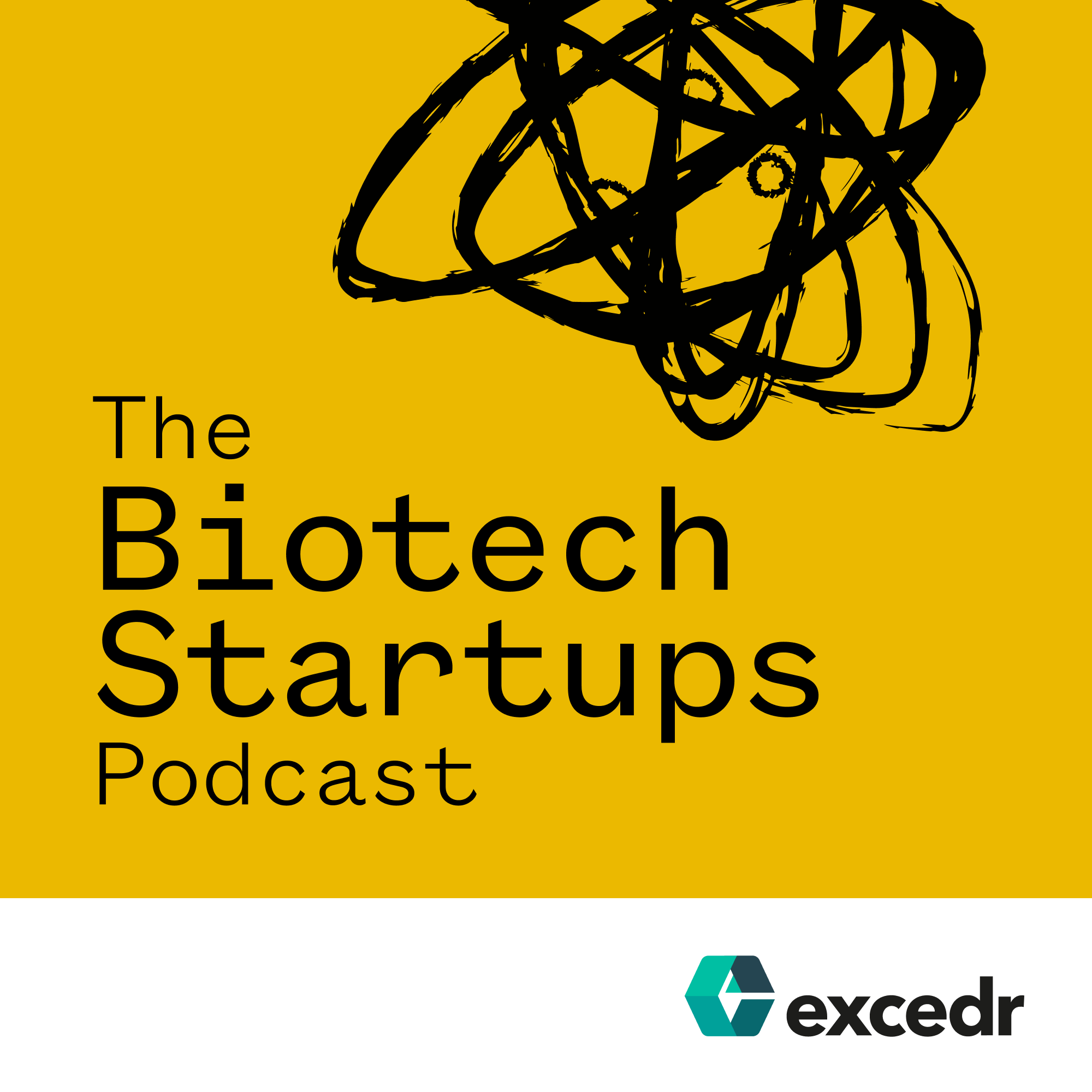🧬 Mark Kotter - bit.bio - Part 2 | Navigating Between the Clinical & Research Worlds | Lessons in Combining Different Fields | The Evolution of Cell Therapies | Transitioning from Academia to Entrepreneurship
June 20, 2024

Part 2 of 4.
My guest today is Mark Kotter, neurosurgeon, stem cell biologist, and CEO and Founder of bit.bio. Bit.bio is an award-winning human synthetic biology company providing human cells for research, drug discovery and cell therapy.
Bit.bio applies a patented safe harbor gene-targeting approach to inducibly express transcription factor combinations that reprogram human induced pluripotent stem cells into highly defined and mature human cell types.
As a podcast listener, you can redeem exclusive discounts with a growing list of biotech vendors and get $500 off your first equipment lease by using promo code “TBSP” on https://www.excedr.com/rewards.
Part 2 of 4.
My guest today is Mark Kotter, neurosurgeon, stem cell biologist, and CEO and Founder of bit.bio. Bit.bio is an award-winning human synthetic biology company providing human cells for research, drug discovery and cell therapy.
Bit.bio applies a patented safe harbor gene-targeting approach to inducibly express transcription factor combinations that reprogram human induced pluripotent stem cells into highly defined and mature human cell types.
In addition to bit.bio, Mark is also the Co-Founder of Meatable, Scientific Founder and Chairman of rejuvenation start-up clock.bio, and Co-Founder and trustee of Myelopathy.org, the first charity dedicated to a common yet often overseen condition causing a “slow motion spinal cord injury.”
Mark has also been a professor and researcher at Cambridge for more than 15 years. His diverse experience as an academic and serial entrepreneur offers a wealth of insights aspiring scientist-founders can draw from.
Join us this week and hear about Mark’s:
- Transition from his PhD studies at Cambridge to the Medical University of Vienna, where he became a resident in neurosurgery and ran his own research group
- Experience at the Max Planck Institute for Experimental Medicine
- Return to Cambridge, where he combined clinical practice with research
- Shift from academia to entrepreneurship, which led to the founding of his first biotech startup
Please enjoy my conversation with Mark Kotter.
Timestamps:
00:28 Intro
01:54 Mark’s spinal cord injury research in Vienna, setting up a lab, and avoiding rigid hierarchy
03:26 Working at the Max Planck Institute, getting noticed again at Cambridge
04:34 Going from no supervisor to teaching PhD students while running a lab
05:36 Starting a new role at Cambridge, the impact of sharing information
08:11 Two different worlds: the research world and the clinical world
09:57 The value of being exposed to and combining the newest tech and patient samples
11:37 Complexity around protocols, cell programming history, and contradictory data
14:18 The translation gap between research and the clinic
16:34 Juggling a teaching role at Cambridge while conducting research, studying in Toronto
18:56 Shifting to the startup world from academia and clinical research
20:23 Starting a family business, understanding financial models and cash flow
21:58 Outro
Enriched Notes:
Topics Mentioned:
Max Planck Institute for Experimental Medicine https://maxplanckneuroscience.org/institute/mpi-exp-medicine/
University of Cambridge https://www.cam.ac.uk/
Cell Programing https://youtu.be/jrVQXHmxH7Y?si=csFYmCfaqkQFm95y
Differentiation Protocols https://www.ncbi.nlm.nih.gov/pmc/articles/PMC9405110/
Direct reprogramming protocols https://www.ncbi.nlm.nih.gov/pmc/articles/PMC8161510/
Synthetic Biology https://en.wikipedia.org/wiki/Synthetic_biology
Opti-ox Technology https://www.bit.bio/platform
How to Spin Out of Academia https://www.excedr.com/resources/how-to-spin-out-of-academia-and-into-a-startup
People Mentioned:
Roger Pedersen https://www.linkedin.com/in/roger-pedersen-0b231115/
Harold Weintraub https://en.wikipedia.org/wiki/Harold_M._Weintraub
Marius Wernig https://med.stanford.edu/profiles/marius-wernig
Shinya Yamanaka https://en.wikipedia.org/wiki/Shinya_Yamanaka
The Biotech Startups Podcast gives you a front-row seat to the business and science of building a biotech. Hosted by Jon Chee, CEO of Excedr, the show features honest conversations with founders, execs, and investors about their work, their companies, and how they got there. From scientific breakthroughs to startup lessons, each episode explores what it really takes to grow a life science company—from pre-seed to IPO.